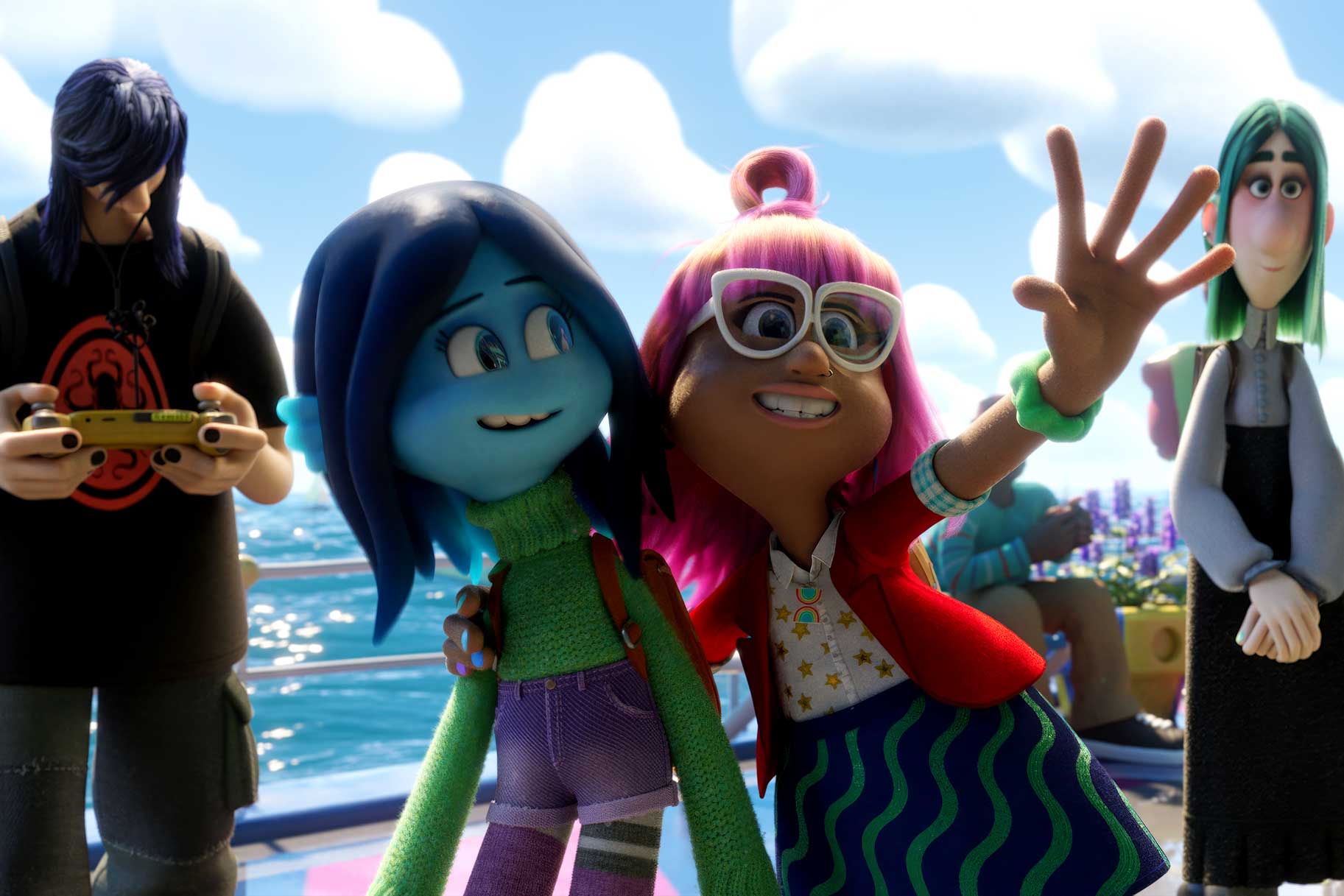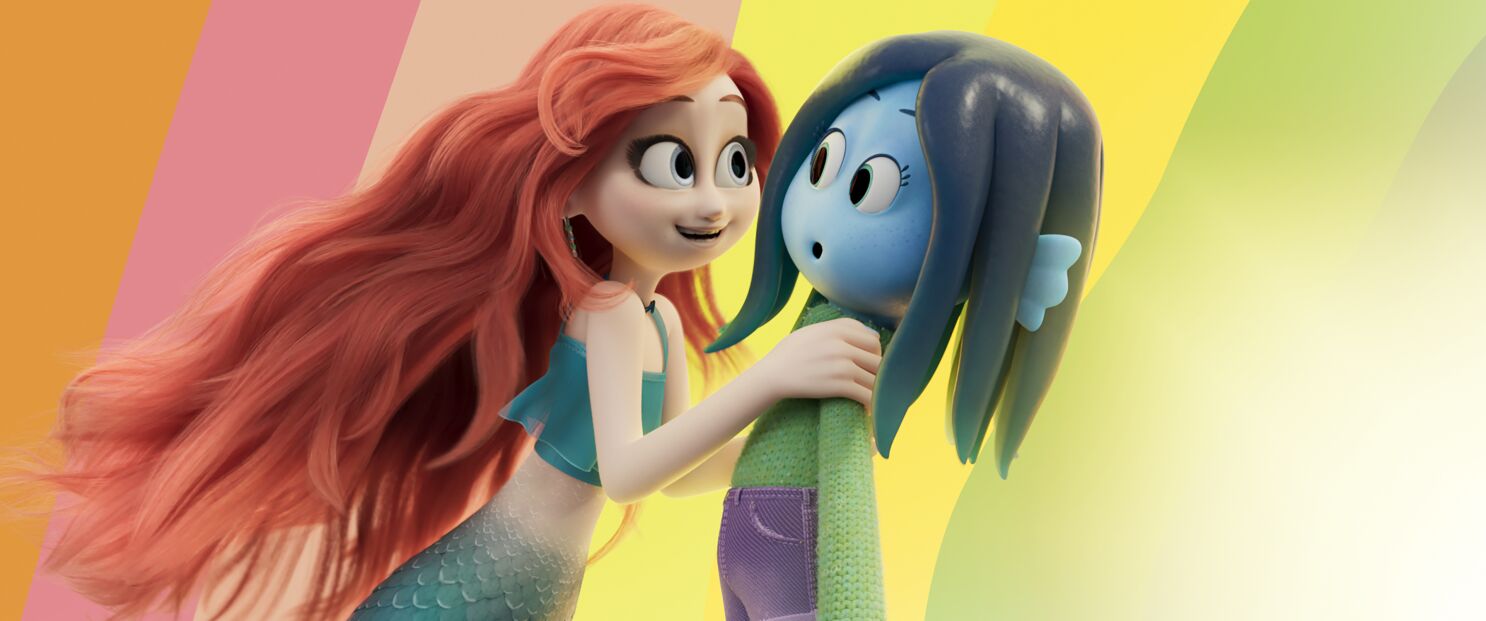Ruby Gillman, Teenage Kraken (2023)
It’s hard not to consider Ruby Gillman, Teenage Kraken in reference to
the recent Disney live-action adaptation of
The Little Mermaid.
A little too hard.
And it
doesn’t seem like a far-stretch to assume the film’s release was planned that
way at some stage. Dreamworks’ flagship film was Shrek in 2001,
and since then, the studio has distinguished itself as the ideological
antagonist to Disney: while Disney does fairy godmothers and love at first
sight, Dreamworks does ogres and raised eyebrows.

Ruby Gillman is a teenage mathlete hiding her identity as
a kraken. Dreamworks has historically been a bit hit-and-miss with its CG
animated characters, but the designs of the humans and superhumans in this
film are creative and rather pretty. Turning an Eldritch mythical creature
like a kraken into a relatable and emotive character must have taken some
innovative thinking. The human characters are well-conveyed by their styles
and expressions, such as the love-interest with a blue afro that subtly
mirrors Ruby’s cobalt, Medusa tentacles.
By contrast, the queendom
of the sea is more of a dim wasteland. We see Ruby being seduced by the
grandeur and beauty she experiences in the deep. But don’t feel that awe with
her - don’t fall in love with it as she does. We culturally associate the
kraken with the dark depths of the sea, whereas mermaid films get the benefit
of the tropic shoal, teeming with colorful life. But surely, the strange
corners of the ocean have something more visually intricate to play with than
barren planes of sand. Even the queen’s cavern feels a bit cramped and flat,
which is disappointing, because the design of the queen herself is one of the
highlights of the movie’s visuals.

Ruby as a main character is very likable, and while many of the
beats in her story felt paint-by-number, her idiosyncrasies feel genuine and
easy to love. Her passion for math and science, her protectiveness of animals,
and her struggle to match her emerging feminism with her desire to go to prom
with a boy she likes all feel like authentic parts of a young person’s
life.
While Ruby’s friend group doesn’t get much time to shine, she
has other relationships that manage to wrangle a few sincere moments out of a
pretty mundane script. Her core relationship with her mother feels
compassionate, and if we didn’t know Ruby was a teenager struggling with a
huge life-event, we might be more inclined to take her mother’s side. There
seems to be a shift in the way children’s media deals with parent/child
relationships, particularly in animation. Parents are allowed to be people
with valid motivations now, and one thing this film does quite a bit better
than its live-action rival over at Disney is showing the fear and love of
restrictive parents. While King Triton breaks Ariel’s possessions in an
uncontrollable, terrifying fit of rage, Agatha Gillman talks her
daughter out of a panic attack with a controlled voice and promises of support
rather than punishment.

Ruby’s other family members support the film’s B-plot, which has
about the same amount of relevance to the main plot as you would expect from a
particularly tired sitcom in its last season, but is charming nonetheless.
Overall, however, “Teenage Kraken” fails to invest viewers in the story, and a
painfully predictable twist doesn’t do much to make up for the script’s
formulaic emotional beats. For all the faults Dreamworks has exhibited over
the years, I can’t remember boring writing being a particular problem, but
much of the comedy, motivations, and twists of this film fall flat.
While
not surprising that The Little Mermaid and Ruby Gillman, Teenage Kraken were
released so close together, I was surprised at just how blatantly “Teenage
Kraken” references the film it is being posed against.

Yet try as it might, this movie just recreates her in
the form of Ruby Gillman, right down to using her powers to save her love
interest from drowning in the inciting incident. She feels out of place, finds
herself more comfortable in a different body, and longs for the world on the
other side of the surface.
The only material subversion attempted
is the villainization of the traditionally beautiful mermaids while portraying
the terrifying kraken as heroes. Which teaches us a very important lesson
about… uh… judging magical creatures before we get to know them? That kraken
are like onions? Or, is it that some kinds of people truly are inherently
evil, it’s just that we can judge which ones they are by their appearance?
The
overt antithetical statement the movie tries to make is either too confusing
to resonate with or completely meaningless. More than two decades after Shrek
blew our minds with the message of letting people pursue their own happiness
regardless of the narrow options society confines them to, Ruby Gillman,
Teenage Kraken manages to continue the Disney-mooning tradition it began while
adding nothing to the conversation it started.
★★★☆☆
Shain Slepian is a screenwriter, script consultant, and content creator with a life-long love of animation and media analysis. Their work can be found on Medium, Left Voice, and on their YouTube channel, TimeCapsule. Shain's book, Reframing The Screenwriting Process, is available on Amazon.























